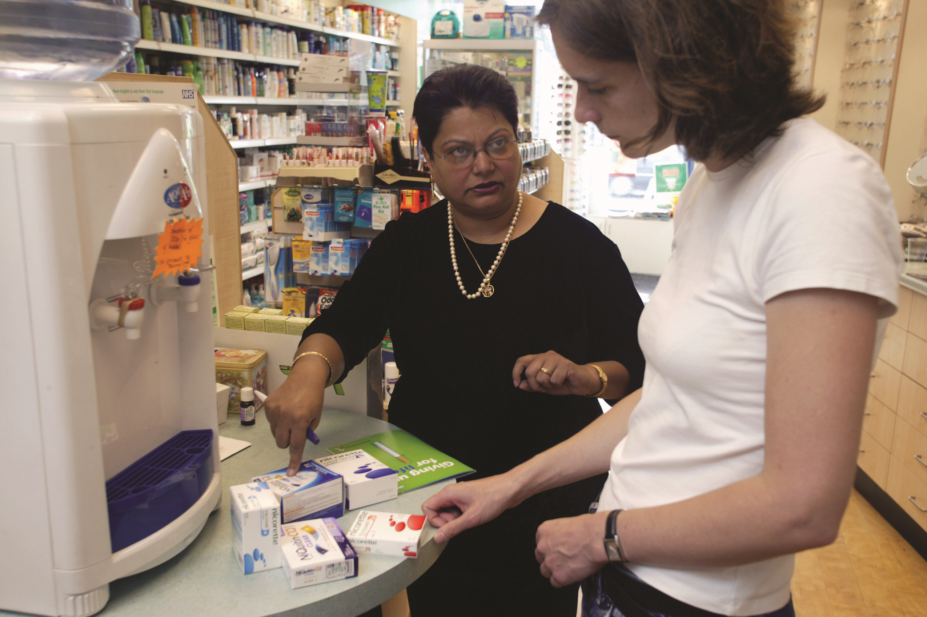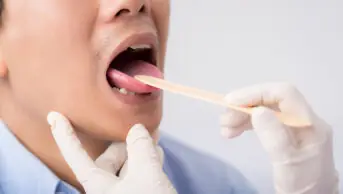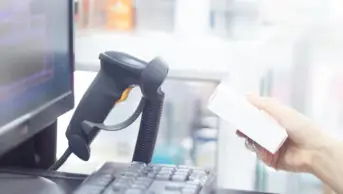
Photofusion Picture Library / Alamy Stock Photo
More than 20 million GP appointments could be transferred to community pharmacy through the GP Digital Minor Illness Referral Service (DMIRS) each year, Ed Waller, NHS England’s director of primary care strategy, has said.
During a speech at the 2019 National Pharmacy Association (NPA) Conference, held in Manchester on 20 June 2019, Waller pointed out that four areas had been chosen to offer the first GP DMIRS pilot programmes: Cheshire and Merseyside sustainability and transformation partnership (STP), Lancashire and South Cumbria Integrated Care System, Cumbria and the North East STP and Greater Manchester Health and Social Care Partnership.
The Pharmaceutical Journal reported earlier in June 2019 that 26 GP practices across England would be able to refer patients to one of 54 pharmacies from July 2019 as part of the extended DMIRS scheme.
Waller added that an estimated 6% of all GP consultations, equating to 20.4 million appointments per year, could be transferred to a community pharmacist as a result of the scheme.
Pharmacists taking on a portion of GP appointments was first forecast in the ‘General Practice Forward View’, published in 2016, as part of its breakdown of “potentially avoidable GP appointments”.
Waller said: “We want and expect community pharmacy to be the first port of call for minor illness in the NHS, and we want to start redirecting people who could be there to go there.”

Source: Charlie Milligan
Mark Lyonette, chief executive of the National Pharmacy Association, said the GP Digital Minor Illness Referral Service (DMIRS) “is probably more exciting than the NHS 111 DMIRS” in terms of clinical practice, volume and impact on patients
Mark Lyonette, chief executive of the NPA, told The Pharmaceutical Journal that NPA members have said the GP DMIRS “is probably more exciting than the NHS 111 DMIRS, both in terms of clinical practice but also in terms of volume as well and impact on patients”.
“I think we all accept that there is actually a potentially huge volume of minor ailment consultations that would be appropriate,” he said, adding that there needs to be “a way of safely, cautiously, carefully building from nought to somewhere near that big figure [of consultations]”.
“I think it will be a circular iterative process where we’ll show our ability, we’ll deliver and then people will say ‘we need more of that’, so then capacity and workforce will be fitted around that.
“No-one’s imagining that that’s going to all happen in 2020,” he said.
Waller, whose speech outlined the role of community pharmacy in delivering the ‘NHS Long Term Plan’, also estimated that there could be “a doubling of the number of pharmacists working in general practice” in the next 12 months as a result of NHS England’s funding incentives to employ pharmacists in primary care networks (PCNs).
His comments come after NHS England published guidance on 17 June 2019 detailing how community pharmacy could be involved with PCNs, adding that their involvement would be a requirement from April 2020.
Also speaking at the conference, pharmacy minister Seema Kennedy said she was “alert to the financial pressures based in community pharmacy”.
“I’m committed to working with the Pharmaceutical Services Negotiating Committee (PSNC) to deliver a fair settlement for NHS services,” she said.
“One which will enable us to deliver our longer-term ambition of fully integrated primary medical and community services.”
The PSNC entered into community pharmacy contract negotiations with the government on 9 April 2019, with Kennedy adding that further details on the outcome of the talks would be available “shortly”.


